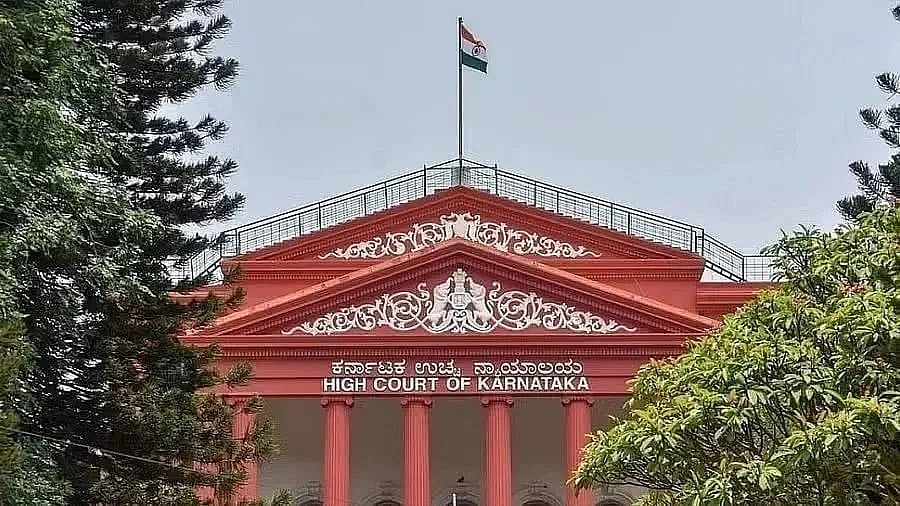
Karnataka High Court
Credit: DH File Photo
Bengaluru: The Karnataka High Court on Wednesday disposed of the public interest litigation (PIL) filed against the decision of dropping the Betta Halasuru cross station along the Krishnarajapuram - Kempegowda International Airport Namma Metro line.
A division bench comprising Chief Justice Vibhu Bhakru and Justice CM Joshi has directed the BMRCL to consider the representations filed by the petitioners.
“The question is whether the station to be constructed at a particular place is not amenable to judicial review under Article 226 of constitution of India. The decision as to the manner in which a metro line is to be constructed lies solely in the reserve of the concerned authority,” the bench said.
The petition was filed by BG Nanjundappa and four others, all residents of and around Betta Halasuru village. According to the petitioners, the original DPR prepared in 2019 there was allocation of a station at Betta Halasuru. The petitioners claimed that the proposal to have a station at Betta Halasuru was dropped since a developer withdrew funding.
It was submitted that as per Phase 2B project and map, the distance between two metro stations should not be less than one km and more than 3 km. According to the petitioners, though the land required for the Betta Halasuru station was acquired and compensation awarded, the proposal was dropped.
“As a result there is no intermediate stop between Bagalur and Doddajala stations and the distance between these two villages is about 8.7 km and Betta Halasuru lies in between these two villages. This affects about 20 villages and about 2 lakh people every day. Students, working class people, businessmen will have to use their own vehicles as there will be no nearby metro stations for about 8 km,” the petition said.
The petitioners claimed to have submitted a series of representations in April- May 2025 to the BMRCL, Deputy Commissioner of Bengaluru Urban District, Chief Minister and the Revenue minister. They moved the high court through the PIL when there was no action on the issue.